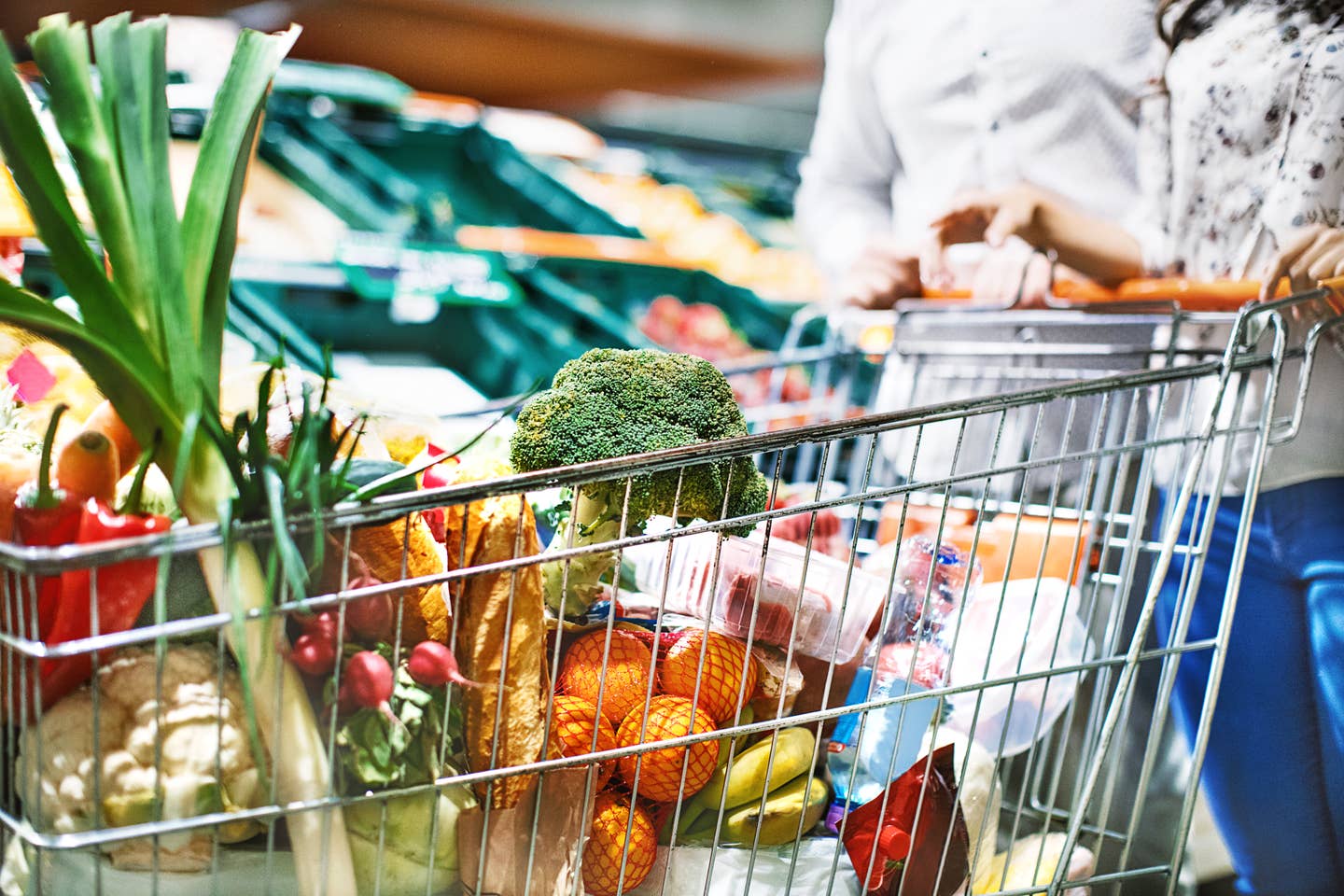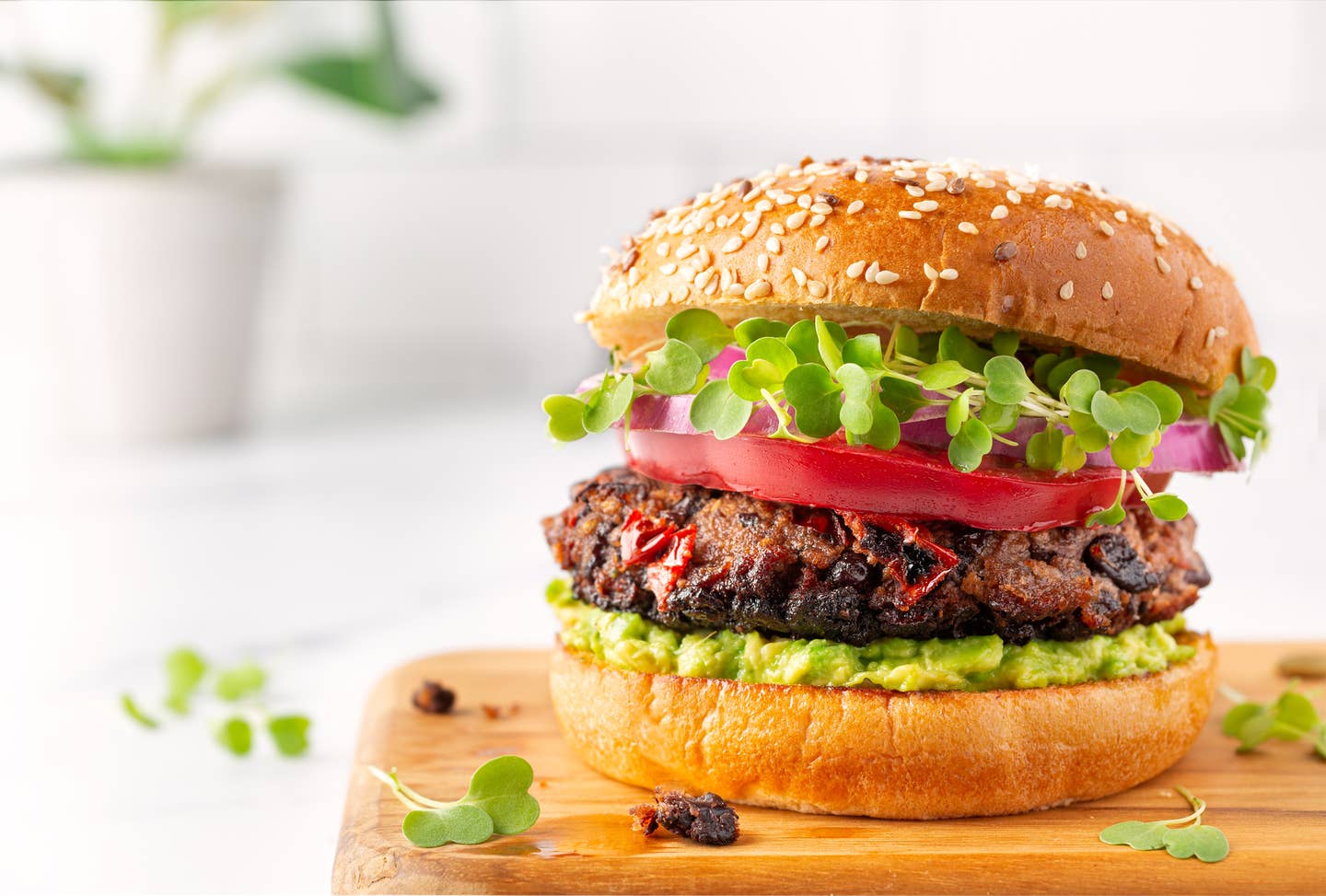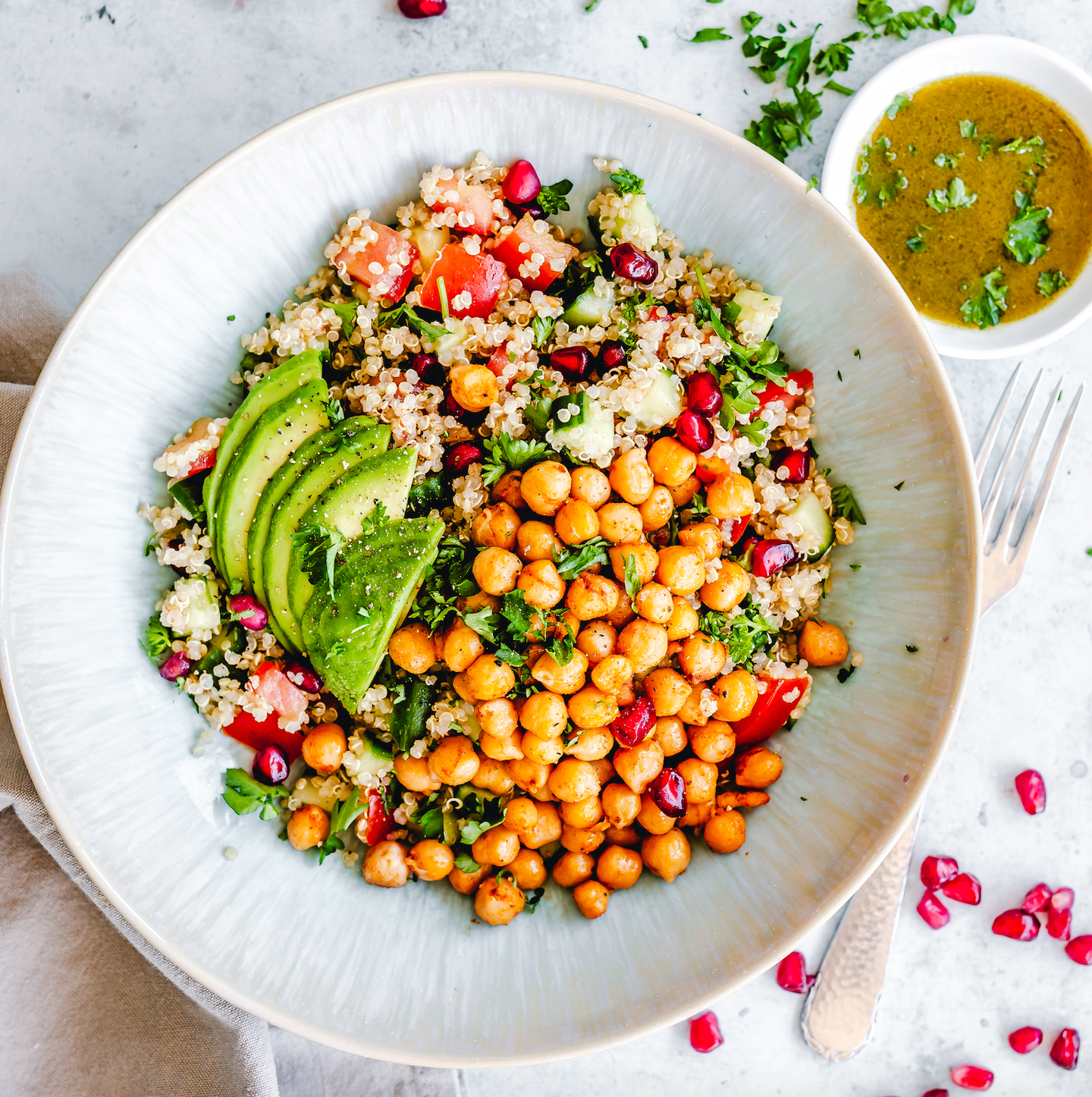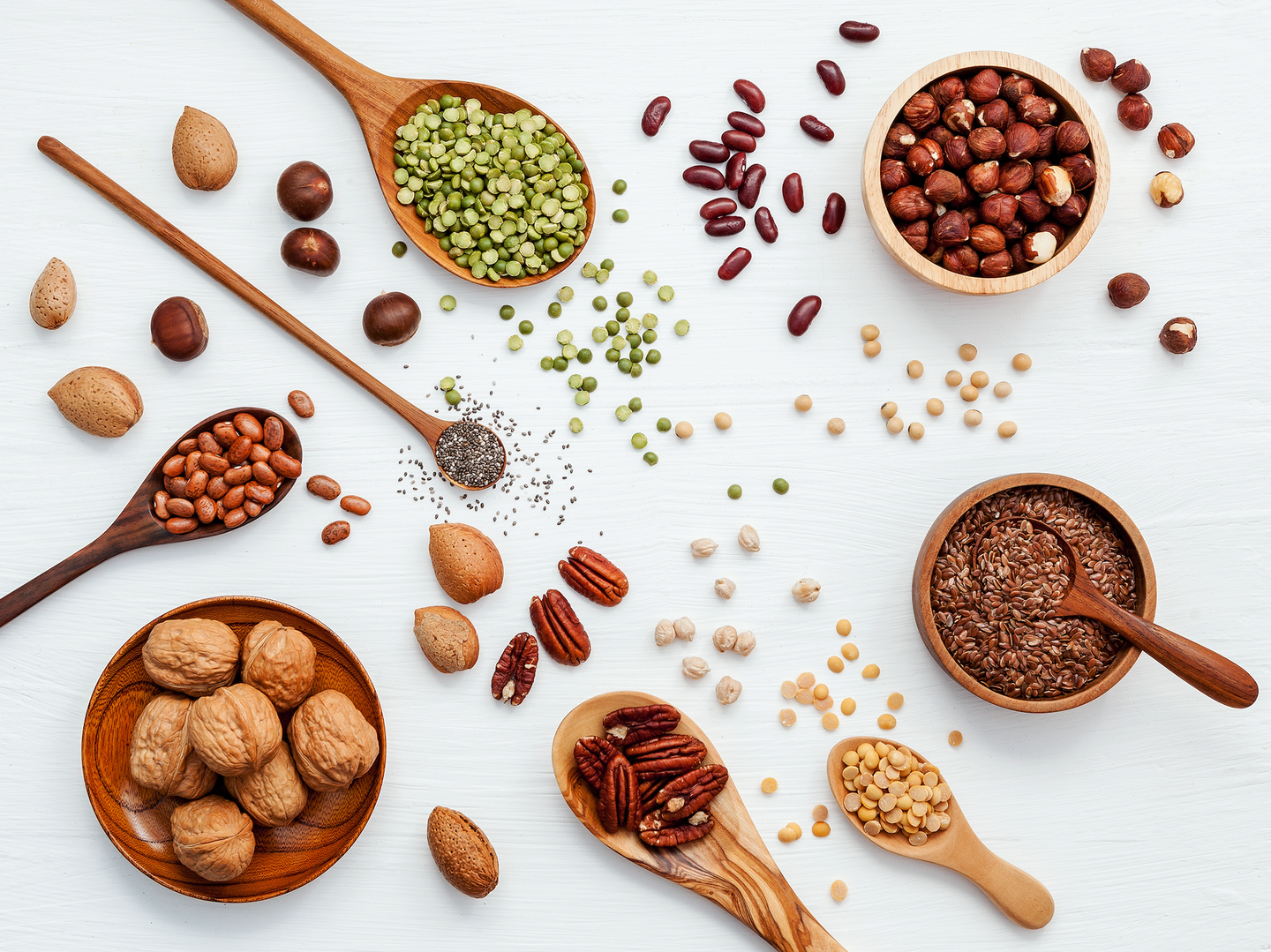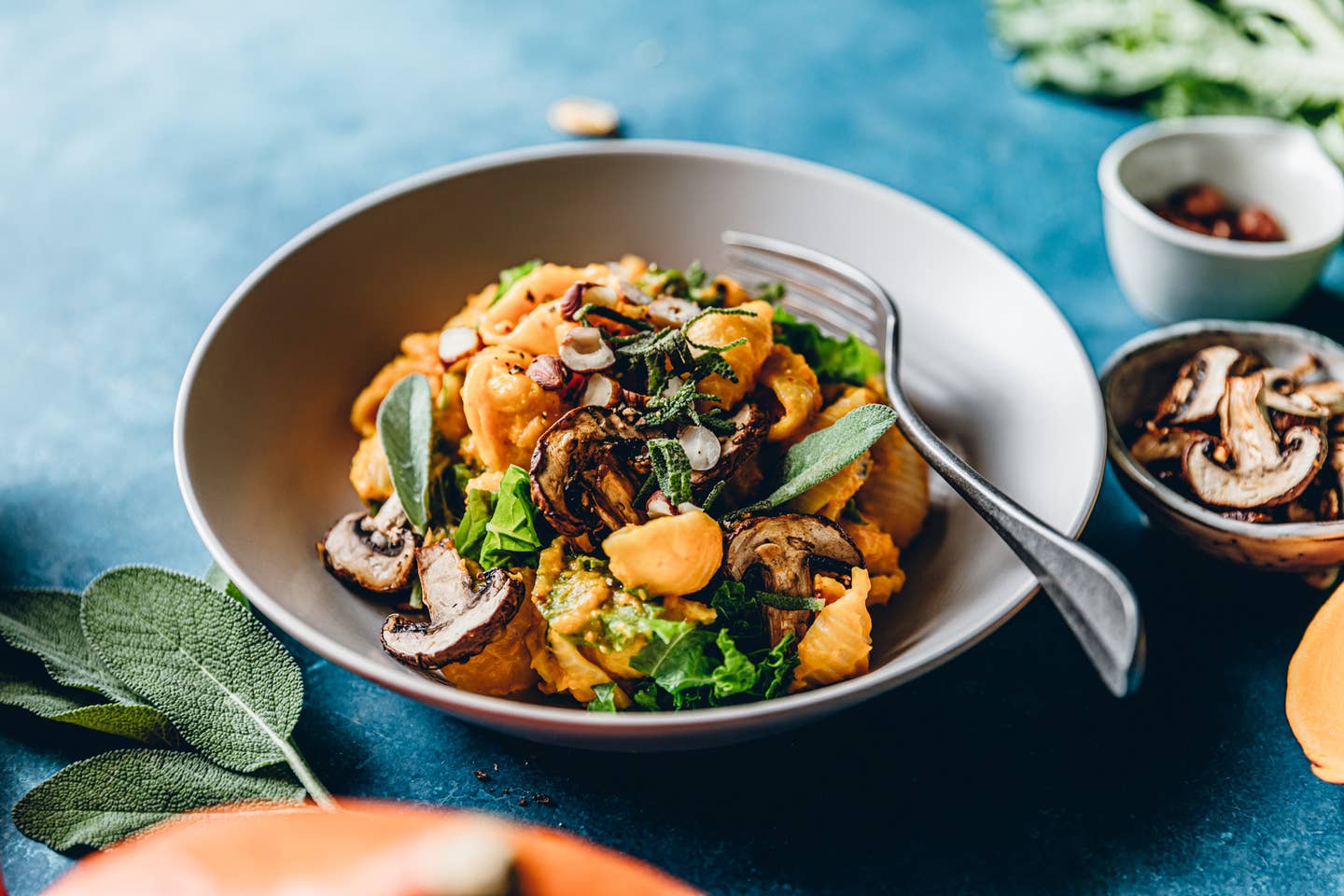
5 Reasons Now Is the Best Time to Try Eating Plant-Based
Plant-based eating is more mainstream than ever, and the food industry is taking note. Millions of people every year are deciding to try eating plant-based, whether to boost their health, to reduce their environmental impact, or to support animal welfare. Over half of all Millennials self-identify as flexitarian, and every day we learn about another vegan Hollywood celebrity or elite athlete who is ditching meat and dairy and embracing a plant-based approach. There’s no shortage of inspiration for someone choosing a plant-forward, plant-based, vegan or flexitarian approach.
And food makers are listening: Forbes reported that plant-based products saw a 27 percent increase in sales in 2020, accounting for $7 billion in food sales, and with growing consumer demand for healthy and sustainable plant-based products, those numbers are expected to continue to climb. It’s never been easier – or more enjoyable – to give plant-based eating a go. Here are five reasons why now is the best time ever to try a plant-based diet:
1. The options are more abundant than ever
Gone are the days when the vegan section at the grocery store (at the few stores that had one) consisted of little more than soy milk and tofu. Now peruse the aisles of any major market from Kroger to Walmart and you’re likely to find more plant-based items than you could possibly fit in your shopping cart.
Similar to the proliferation of gluten-free products, vegan foods are easier to identify than ever. Most contain a ‘V’ on the label, or state that the product is ‘suitable for vegans’ or contains ‘no animal products. These labels can help you avoid sneaky animal-based ingredients in items you might assume were vegan, such as wine, vinaigrette dressings, crackers, sauces, or veggie burgers (which often contain eggs).
For the full list of plant-based or vegan products that are rated by taste and health, check out The Beet Meters, which reviews every nature of plant-based products on the market: vegan cheese, non-dairy creamers, dairy-free ice creams, chicken alternatives, veggie burgers, and so much more. Every week there are more of these animal-free products to choose from.
Almost any animal-based food product you can think of has a plant-based equivalent (or twenty), from burgers and nuggets to ice creams and cream cheese. Looking for dairy-free milk? You can choose from oat, hemp, almond, coconut, cashew, and of course, soy. Craving cheese? Vegan cheese has come a long way over the years thanks to companies like Miyokos Creamery, Follow Your Heart, Kite Hill, Ciao, Violife, Treeline and many others.
Today’s vegan cheeses are full of tantalizing flavors, realistic textures, and fill almost every cheese niche from cheddar to feta and aged brie. There are also vegan crab cakes, bacon, fish-free sushi, chickenless nuggets, and real-tasting meatballs... anything a vegan heart can desire can be found in a plant-based form. You can even make the perfect plant-based omelet thanks to JUST Egg, an astoundingly realistic product made from mung beans.
While a healthy diet should consist mainly of unprocessed, whole foods like fruits, vegetables, and legumes, it sure helps to know that if you have a strong hankering for buffalo chicken wings but want to avoid meat, you are likely to find several plant-based varieties in your local market. You can finally have your vegan cake and enjoy eating it too!
2. Eating plant-based is becoming more accessible and affordable
It’s true that a vegan diet can be expensive if you purchase a lot of processed and pre-made foods. But with a little prep and know-how, a plant-based diet can be much cheaper (by up to 40 percent) than an animal-based diet – and as an extra perk, meal-prep is often much quicker. Renowned vegan chef Charity Morgan, a graduate of Le Cordon Bleu who now cooks for famous athletes and celebrities, uses her Instagram account to demonstrate how to cook a wide range of flavorful plant-based meals that are cheaper than a trip to McDonald's.
With the proliferation of affordable online grocery sites like Thrive Market, PlantX, Vejii, Misfits Market and Imperfect Foods, you can find plant-based staples like rice, pasta, and beans at discounted prices, and have fresh fruits and vegetables delivered to your door for less than they would cost at a typical supermarket.
Bulk bins at grocery stores are another good source of lower-cost staples. You can find granolas, baking ingredients, snacks, herbs, and spices in the bulk section at a lower cost than the pre-packaged versions.
No matter where you shop, you can keep costs down by filling your cart with items like canned or dried beans, whole-grain pastas, and nuts and seeds. Frozen fruits andv veggies are an affordable year-round option, offering endless varieties of affordable, healthy, and flavorful meals on a tight budget.
And if you absolutely don’t have time to cook, or don’t enjoy it, there are dozens of vegan-friendly meal kit companies such as Purple Carrot, Veestro, and Fire Road, as well as growing numbers of meal delivery services that drop off ready to eat meals for less than the cost of a take-out meal. Find more tips on starting your affordable plant-based diet from The Beginner's Guide to Going Plant-Based. For a starter kit, check out the 17 items to buy to start your plant-based journey.
During the first few weeks of going plant-based, eating out restaurants can be intimidating. Fortunately, thanks to growing demand, more establishments are offering vegetarian and vegan options. If you want to seek out restaurants you know serve plant-based entrees, check out the Happy Cow app that lets you search using several filters, including geographic location, type of food, and whether a restaurant has plant-based options or is fully vegan.
Vegan chain restaurants like Veggie Grill, Native Foods, and others are quickly cropping up across the country. And for a sweet fix, hit up one of the over 50 Cinnaholic locations across the U.S. and Canada, where you’ll be mesmerized by a selection of gourmet cinnamon rolls, frostings, cookie dough, brownies, and toppings, and no animal ingredients in sight.
3. Support is just a click away
Whereas a lack of support once kept many people from sticking to their plant-based approach, these days the overabundance of options can be overwhelming. Luckily there are online resources to help simplify plant-based shopping and dining, including the recipes on The Beet.
If you are new to eating plant-based, start with our beginner’s guide to a plant-based diet. Looking for tips on the newest plant-based products at your favorite stores? You can find extensive guides for plant-based shopping at Trader Joe’s, or our guide to ordering vegan at Starbucks, and even what's not on the menu at Taco Bell. Google is your friend: just search “ordering vegan at …” and type in your desired destination to see what options are available.
What about nutrition? Eating a balanced diet is important for everyone, but when going plant-based it’s especially vital to understand how to obtain the proper nutrients, and when you might need to supplement. If you are looking for tried-and-true healthy, simple, and tasty vegan recipes and meal planners, check out the comprehensive information provided by sites like Forks Over Knives and The Beet. There are nearly endless recipe sites for inspiration, filling almost every conceivable niche, from budget-friendly to ethnic specialties, oil-free, gluten-free, decadent desserts and more. A few of our go-to’s are The Vegan 8, Plantbased On A Budget, and Oh She Glows.
If you love scrolling Instagram for inspiration, there’s no shortage of vegan influencers sharing beautiful recipes, fitness advice, sustainability tips, and good vibes. Dr. Judy Brangman (@theplantbasedmd) offers thoughtful advice for those interested in plant-based wellness. Maya Leinenbach (@fitgreenmind) makes easy-to-follow recipe videos for all sorts of vegan eats. Tabitha Brown (@iamtabithabrown), Isaias Hernandez (@queerbrownvegan), Haile Thomas (@Hailethomas), and Rudy Ramos (@vegicano) are a few of the many BIPOC voices raising the bar on diversity and inclusivity in the vegan sphere. A quick social media search for ‘vegan’ brings up hundreds of accounts, so it’s up to you to decide which ones inspire you most.
4. It’s one of the best things you can do to reduce your risk of disease
Medical studies abound on the pronounced health benefits of plant-centered diets, from lowering the risk of heart disease and diabetes to keeping body weight within a healthy range. Now, evidence is also mounting that a plant-based diet significantly lowers your susceptibility to viruses, including COVID.
A new international study with nearly 3,000 participants across six countries found that those following plant-based diets had 73 percent lower odds of contracting moderate-to-severe COVID-19 than those who consumed the standard American diet of meat and dairy. Harvard researchers came to a similar conclusion in their study on the relationship between diet and COVID risk: Up to one-third of COVID-19 cases could have been prevented or symptoms lessened with better access to (and consumption of) healthy plant-based foods.
Plant-based approaches to nutrition are finally gaining traction, as research debunks much of the conventional ‘wisdom’ we’ve been fed by the meat and dairy industries. For example, we now know that milk is not the best source of calcium (dark leafy green vegetables and legumes are), and in fact, full-fat dairy has been linked to heart disease and certain cancers among other health problems.
Many vegetables, legumes, beans, and seeds have more calcium per serving than a glass of milk, plus these plant sources carry additional nutrients as well as fiber, without the downsides of dairy.
Additional studies show that eating a largely or fully plant-based diet can increase lifespan, maintain muscle mass, reduce cholesterol, lower inflammation, and many other benefits.
5. Giving up animal products can help save the planet
It’s no secret that our planet's natural resources are struggling to keep up with our demand, and humans are impacting climate change by contributing greenhouse gases to the atmosphere at an alarming rate. The UN issued a "Code Red" for the planet, warning that human-induced climate change is now widespread and intensifying rapidly in a widely publicized UN International Panel on Climate Change (IPCC) Report.
Global food production is one of the largest contributors to fossil fuel emissions and environmental degradation, as feed, water and land use for animal farming has put undo stress on our rainforests, biodiversity and ability to recapture carbons released into the air. While the situation is dire, there’s an optimistic potential which is that a recent prioritization to shift toward sustainable food systems may hold hope for the future. Eating plant-based and giving up meat and dairy is one of the most effective ways to optimize both human health and environmental sustainability. Many scientists now emphasize that minimizing animal farming will play a critical role in this shift.
Healthier humans, healthier planet, and kinder food systems? If there’s such a thing as a win-win-win, plant-based eating we are seeing on the rise might just be it. Need an extra push to get started? Check out these 21 inspiring celebrity quotes about going meat-free, and these 15 mantras from people who changed their lives. Your turn.
More From The Beet


